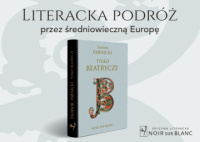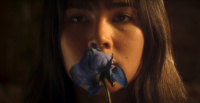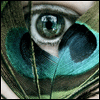Florence The City and Its Architecture
R. Goy
"See where it lies before us in a sun-lighted valley, bright with the winding Arno, and shut in by swelling hills; its domes, and towers, and palaces, rising from the rich country in a glittering heap, and shining in the sun like gold." - Charles Dickens, "Pictures from Italy", 1844. For nearly two centuries, from the era of Dante to that of Michelangelo, the comparatively small but extremely wealthy city of Florence exerted an exceptional influence over the development of western civilization that even today remains the subject of endless study, debate and research. The inspired patronage of Cosimo and Lorenzo de Medici, of Giovanni Rucellai and others, gave rise to seminal architectural works by Brunelleschi and Alberti, Michelozzo and Michelangelo, to name but a few. Joined by their contemporaries from the Pitti, Strozzi, and Pazzi families, the Medici also provoked a renewed study of classical philosophers and the establishment of renowned cultural academies and public libraries. It was during the thirteenth and fourteenth centuries that the modern Italian language of today was developed and disseminated, largely through the three-fold genius of Dante, Petrarch, and Boccaccio. This volume provides a comprehensive and distilled account of the urban history of Florence, from its Roman foundation to the radical transformations due to the new modes of transportation and communication of the nineteenth and twentieth centuries. Avoiding a conventional chronology, the book has a largely thematic organization, identifying important urban nuclei and their modes of growth, as well as the stylistic development of the principal architectural typologies. The book has approximately 350 illustrations, including both historical and newly commissioned photographs; reproductions of famous paintings, maps, and prints; and architectural plans and drawings. Among famous works shown here are the painted views of Bellotto, the eighteenth-century lithographs of Zocchi, the Medici villas painstakingly detailed by Utens, and the famous 'della catena' view of 1472. The first part of the book traces the city's history up to the nineteenth century, the decade of Italian unification. The second part identifies and analyzes in detail the two groups of monumental buildings that have long symbolized the spiritual and the political nuclei of power in Florence: the Piazza del Duomo and the ecclesiastical monuments around it, and the great civic square Piazza della Signoria, which plays the major role in Florence's political history. The third part of the book is a typological discussion of the architecture of the city, including a brief outline of how the city's craftsmen actually constructed its monuments, from obtaining the stone to organizing the guild system. The discussion of Florence's architecture includes its churches, housing, and the most famous and monumental great palaces of the Renaissance - those of the Medici, Strozzi, Rucellai and the Pazzi families - as well as lesser-known contemporaries and successors. This includes an analysis of the development of the rural or suburban villa as a type unto itself, concentrating specifically on the many Medici villas outside Florence; and the later Baroque Palazzi, whose at times restrained facades conceal interiors of extraordinary richness and sumptuous decoration. The final part outlines the momentous changes to the city since the mid-nineteenth century, from the destruction of the walls and the ancient markets to the devastation of the bridges in 1944 and the inundation of 1966, and to reconstruction following each of these disasters. The book concludes with a survey of architecture between the wars and highlights of the modernist period.
więcej
Informacje dodatkowe o Florence The City and Its Architecture:
Wydawnictwo: angielskie
Data wydania: b.d
Kategoria: Inne
ISBN:
Liczba stron: 0
Kup książkę Florence The City and Its Architecture
Sprawdzam ceny dla ciebie ...
Cytaty z książki
REKLAMA

















Chcę przeczytać,